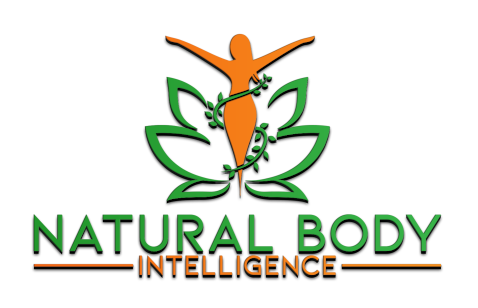In today’s world, where we are constantly exposed to environmental toxins, stress, and processed foods, finding balance can be a challenge. However, practical steps toward a healthier lifestyle can help us navigate this toxic landscape and reclaim our well-being. This article explores everyday strategies for achieving balance, empowering you to take control of your health naturally.
Understanding the Toxic World We Live In
The modern environment is filled with pollutants, artificial chemicals, and stressors that can negatively impact our health. Air pollution, pesticides, heavy metals in water, processed foods, and even the digital overload of constant screen time contribute to the body’s toxic burden. The cumulative effect of these factors can lead to fatigue, weakened immunity, hormone imbalances, and chronic illnesses.
While it may seem daunting to combat these influences, adopting simple lifestyle changes can make a significant difference. By nurturing your body’s natural ability to detoxify and heal, you can achieve a healthier balance despite living in a toxic world.
Step 1: Prioritize Clean Eating
One of the most effective ways to reduce your exposure to toxins is by choosing whole, organic, and unprocessed foods. Clean eating involves:
- Avoiding Processed Foods: Processed foods often contain artificial preservatives, additives, and unhealthy fats that can burden the liver and digestive system. Instead, choose fresh fruits, vegetables, lean proteins, and whole grains.
- Opting for Organic Produce: Whenever possible, opt for organic fruits and vegetables to reduce exposure to pesticides and other chemicals. If buying organic is not always feasible, focus on the “Dirty Dozen” list of foods known to have the highest pesticide residues and consider washing them thoroughly. Explore this list at Environmental Working Group.
- Incorporating Detoxifying Foods: Foods like garlic, cilantro, spirulina, and cruciferous vegetables (e.g., broccoli and kale) can support the body’s natural detoxification processes by enhancing liver function and eliminating heavy metals. For more on detoxifying foods, visit Medical News Today.
These dietary changes can significantly lower the amount of toxins entering your body while providing the nutrients needed for optimal health.
Step 2: Embrace Regular Physical Activity

- Aim for Consistency over Intensity: Engage in moderate exercise, such as brisk walking, yoga, or swimming, for at least 30 minutes daily. Consistent, gentle movement can be more beneficial than sporadic intense workouts.
- Incorporate Movement Throughout the Day: In addition to scheduled workouts, make a conscious effort to move regularly. Take short breaks from sitting, stretch every hour, or go for a walk during your lunch break.
- Try Mind-Body Practices: Activities like yoga, Tai Chi, or Qigong can help reduce stress, improve flexibility, and support detoxification by stimulating the lymphatic system.
Step 3: Manage Stress through Mindfulness
Chronic stress is a significant contributor to the body’s toxic burden, as it can disrupt hormonal balance and compromise the immune system. Practicing mindfulness techniques can help reduce stress levels and restore balance. Here are some mindfulness practices to consider:
- Meditation: Regular meditation can reduce stress hormones like cortisol, enhance emotional well-being, and promote relaxation. Even a few minutes of mindfulness meditation each day can have a positive impact.
- Deep Breathing Exercises: Deep, diaphragmatic breathing helps calm the nervous system and supports oxygen exchange, aiding in the elimination of carbon dioxide and other waste products. Learn deep breathing techniques from Cleveland Clinic.
- Journaling: Writing down your thoughts, emotions, and experiences can provide a therapeutic outlet for stress. It can also help you gain clarity on what’s causing stress and how to address it.
Step 4: Support the Body’s Natural Detoxification Pathways
Your body has an incredible capacity to detoxify itself through organs like the liver, kidneys, skin, and lungs. Supporting these natural processes can enhance your overall health:
- Stay Hydrated: Drinking plenty of water helps flush out toxins through the kidneys. Aim for at least 8-10 glasses of water daily, and consider adding a squeeze of lemon for extra detoxifying benefits.
- Dry Brushing and Sauna Use: Dry brushing before a shower can stimulate the lymphatic system and exfoliate the skin, enhancing toxin elimination. Similarly, regular sauna sessions can promote sweating, which helps eliminate toxins stored in fat tissues.
- Get Adequate Sleep: During sleep, the body undergoes repair and detoxification processes. Prioritize 7-9 hours of quality sleep each night to support overall health and the body’s natural ability to cleanse itself.
Step 5: Limit Exposure to Environmental Toxins
Reducing exposure to environmental toxins is another crucial aspect of finding balance. Consider the following strategies:
- Use Natural Cleaning and Personal Care Products: Many commercial products contain harmful chemicals that can be absorbed through the skin or inhaled. Opt for natural, eco-friendly alternatives wherever possible. For non-toxic products, explore Environmental Working Group.
- Filter Your Water: Tap water can contain contaminants such as chlorine, heavy metals, and microplastics. Using a high-quality water filter can reduce these toxins.
- Reduce Digital Exposure: The constant bombardment of digital screens can cause eye strain, disrupt sleep patterns, and contribute to mental fatigue. Limit screen time, especially before bed, and consider using blue light filters on your devices.
Embrace the Power of Community and Connection
A healthy lifestyle is not just about what you eat or how much you exercise; it’s also about social connections and emotional well-being. Engaging with a supportive community can improve your health and help you find balance:
- Participate in Group Activities: Joining a fitness class, meditation group, or community gardening project can provide motivation and foster a sense of belonging.
- Practice Gratitude and Positivity: Sharing positive experiences and expressing gratitude with loved ones can boost mental health and reduce stress.
- Seek Professional Guidance When Needed: Sometimes, finding balance requires the support of health professionals like naturopaths, dietitians, or wellness coaches who can guide you in developing a personalized plan.
Conclusion
Living in a toxic world presents challenges, but it’s possible to find balance by making conscious, everyday choices that support your body’s natural healing processes. From clean eating and regular exercise to mindfulness practices and limiting environmental toxins, these steps empower you to take control of your health. Remember, small changes add up over time, leading to a more balanced and healthier life.

